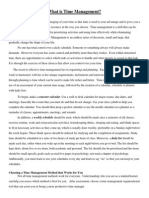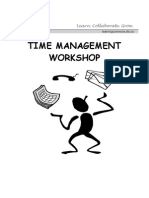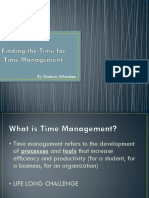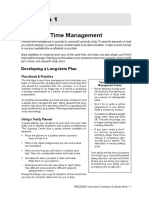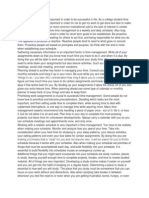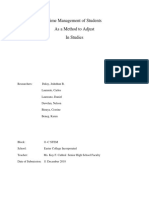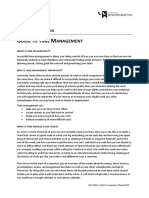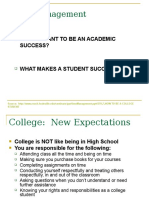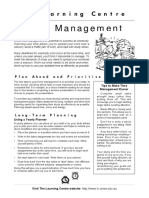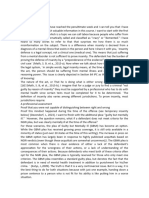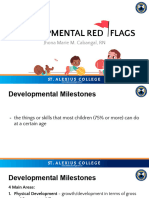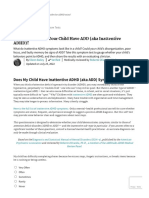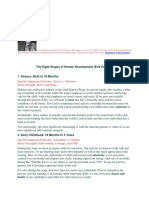0% found this document useful (0 votes)
42 views4 pagesTime Management
Time management is important for university students to avoid complications and stress. The document provides tips for managing time effectively through self-assessment, scheduling, prioritizing tasks, and avoiding perfectionism and procrastination. It recommends determining how much time is needed to study for classes based on their difficulty, and blocking out study time in a daily schedule along with breaks. Combining activities can also help maximize available time. Planning tools like to-do lists and staying on top of coursework from the beginning of term can assist with guiding time effectively.
Uploaded by
Jemelia StewartCopyright
© © All Rights Reserved
We take content rights seriously. If you suspect this is your content, claim it here.
Available Formats
Download as PDF, TXT or read online on Scribd
0% found this document useful (0 votes)
42 views4 pagesTime Management
Time management is important for university students to avoid complications and stress. The document provides tips for managing time effectively through self-assessment, scheduling, prioritizing tasks, and avoiding perfectionism and procrastination. It recommends determining how much time is needed to study for classes based on their difficulty, and blocking out study time in a daily schedule along with breaks. Combining activities can also help maximize available time. Planning tools like to-do lists and staying on top of coursework from the beginning of term can assist with guiding time effectively.
Uploaded by
Jemelia StewartCopyright
© © All Rights Reserved
We take content rights seriously. If you suspect this is your content, claim it here.
Available Formats
Download as PDF, TXT or read online on Scribd
/ 4

